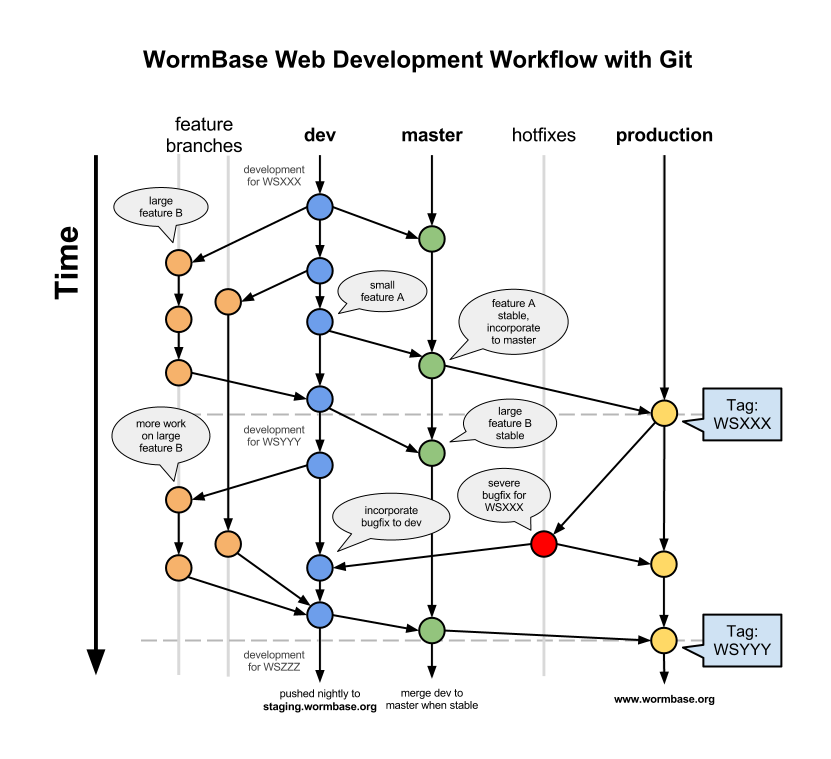Difference between revisions of "Development workflow - webdev"
From WormBaseWiki
Jump to navigationJump to search (→Links) |
|||
| Line 35: | Line 35: | ||
= Links = | = Links = | ||
| + | * [http://staging.wormbase.org staging site for testing] | ||
* [https://github.com/WormBase/website github repository] | * [https://github.com/WormBase/website github repository] | ||
* [https://github.com/WormBase/website/issues github issue tracker] | * [https://github.com/WormBase/website/issues github issue tracker] | ||
* [https://docs.google.com/drawings/d/1j-a-8a_hTIqCiMCRLUcemGqEe_c8LXOZKuioHlE9oX4/edit?usp=sharing workflow diagram] | * [https://docs.google.com/drawings/d/1j-a-8a_hTIqCiMCRLUcemGqEe_c8LXOZKuioHlE9oX4/edit?usp=sharing workflow diagram] | ||
Revision as of 19:51, 6 March 2013
This page describes the development model used by the web development team at WormBase using git. This includes our branching strategy and release management.
Contents
Diagram
Editable version of the diagram
Branch Strategy
Main branches
Inside the WormBase/website repository, there are three main branches: master, dev and production.
master: current, stable code. All new changes brought into master have been tested on staging.wormbase.org and approved by either the curator requesting the change, or the lead developer.
dev: any features/changes ready for testing should be pushed to thedevbranch. This code gets pushed nightly to staging.wormbase.org.
production: the code currently in production. Branched off ofmasterat each release.
